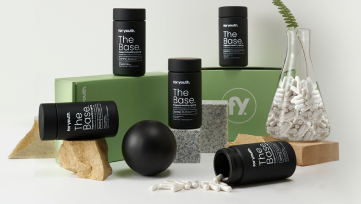Role of Quercetin in Cancer Prevention and Treatment


 Shop our Quercetin
Shop our Quercetin 
The emerging research on quercetin, a naturally occurring flavonoid, underscores its potential as a multifaceted agent in the fight against cancer. Its mechanisms, which range from promoting cancer cell apoptosis to inhibiting angiogenesis, position it as a candidate for adjunctive cancer therapy. However, despite promising in vitro and in vivo findings, the translation of these effects into clinical settings remains insufficiently explored. This gap highlights the need for more rigorous clinical trials to ascertain the efficacy of quercetin in enhancing cancer treatment outcomes. How might further research into quercetin’s pharmacokinetics and its interaction with conventional cancer therapies provide a clearer picture of its therapeutic potential?
Understanding the broad spectrum of quercetin’s benefits beyond its anti-cancer properties is essential for appreciating its overall impact on health. Notably, quercetin’s role in reducing inflammation makes it a valuable dietary supplement for various demographic groups, including seniors, who may particularly benefit from its anti-inflammatory and antioxidant properties. Additionally, vegans and vegetarians can leverage quercetin to supplement their plant-based diets, which might lack certain anti-inflammatory compounds found in animal products. Furthermore, targeted insights into quercetin’s effects on men and women showcase its diverse health benefits, including hormonal balance and enhanced physical endurance. As research continues to unveil quercetin’s multifaceted health benefits, incorporating it into daily nutrition could be a key strategy for improving overall well-being and potentially augmenting cancer therapies.
Understanding Quercetin and Its Sources
Quercetin, a flavonoid found abundantly in fruits and vegetables, exhibits significant anti-inflammatory and antioxidant properties. Common sources include onions, apples, berries, and kale.
This compound enhances cellular defense mechanisms against oxidative stress, thereby supporting overall health. Its widespread availability in a variety of plant-based foods makes it accessible as a natural supplement in daily diets, promoting well-being through its biological activities.
By signing up, you consent to receive For Youth emails
Get The Latest On Longevity Delivered To Your Inbox.
Quercetin’s Anti-Cancer Properties
Research has revealed promising potential in quercetin’s ability to combat various forms of cancer. This naturally occurring flavonoid induces apoptosis, the programmed death of cancer cells, and inhibits tumor growth by disrupting cell proliferation pathways.
Additionally, quercetin’s antioxidant properties help mitigate oxidative stress, a known contributor to cancer development. Its ability to modulate signal transduction pathways further enhances its therapeutic profile in oncology.
Research and Clinical Studies
Numerous clinical studies and research initiatives have been undertaken to explore the efficacy of quercetin in the prevention and treatment of cancer.
These studies primarily focus on how quercetin modulates molecular pathways involved in cancer cell proliferation and apoptosis.
Results vary, but many indicate potential benefits in reducing cancer progression and enhancing the effectiveness of conventional chemotherapy, warranting further investigation in targeted clinical trials.
Integrating Quercetin in Treatment Protocols

 Shop our Quercetin
Shop our Quercetin 
Given its potential benefits, the integration of quercetin into existing cancer treatment protocols is being carefully considered by medical professionals. This involves determining ideal dosages and administration routes.
Additionally, synergistic effects with current chemotherapy agents and radiation therapy are under investigation. The goal is to enhance efficacy while potentially mitigating adverse effects, thereby improving patient outcomes in oncological care.
Future Directions in Quercetin Research
Looking ahead, further research into quercetin’s mechanisms of action and best dosing protocols is crucial for enhancing its effectiveness and safety in cancer therapy.
Future studies should focus on clinical trials that establish ideal dosages, timing, and delivery methods.
Investigating synergistic effects with other anticancer agents could also provide valuable insights, potentially leading to more thorough, effective cancer treatment strategies.
What You Need To Know About For Youth
For Youth demystifies the science of longevity, making it accessible to everyone. With the view of considering aging as a “disease” that can be cured, we aim to help individuals slow down or even reverse aging at a cellular level, ultimately leading to a healthier and longer life.
Aging is the underlying cause of various health issues, ranging from minor problems like wrinkles to severe diseases like Alzheimer’s or cancer. By slowing down the aging process, one can significantly improve their overall health and well-being.
For Youth offers a biological age test and a range of science-backed, lab-tested, and carefully sourced supplements, such as NMN or resveratrol, to help you monitor and counteract the effects of aging.
Quercetin by For Youth
⇒ The Zombie – Quercetin Singapore

 Shop our Quercetin
Shop our Quercetin 
Description:
Quercetin is a scientifically-backed, plant-based anti-aging supplement. The Quercetin Phytosome™ acts as both an antioxidant and senolytic, effectively targeting and eliminating senescent or “zombie” cells to promote a longer, healthier life. By removing these harmful cells, quercetin helps to reduce inflammation, alleviate allergy symptoms, strengthen the immune system, improve athletic performance, and address a variety of age-related issues.

While some companies may ambiguously mention “made in XXX”, they may not provide full disclosure about the chain of production. Unlike these companies, For Youth is committed to complete transparency and shares the details of our supply chain at every step of the process.
Sourced from Italy
Indena, the firm behind Quercetin Phytosome™, is a company with over a century’s worth of history based in Italy, specializing in herbal ingredients. They innovated the Phytosome™ technology to markedly escalate the bioavailability of ingredients typically not effectively absorbed by our bodies.
Produced in Italy
The flowering extract of the Sophora japonica or Japanese pagoda tree is refined into Quercetin Phytosome™ in Italy. The state-of-the-art Phytosome™ technology develops a free-flow matrix preventing quercetin from clumping and heightening its absorption rate dramatically. This innovation leads to an extraordinary 20-fold improvement in absorption relative to standard quercetin.
Encapsulated in France
Our Quercetin product is encapsulated within vegetarian capsules at our affiliate facilities located in France.
Bottled in Singapore
The Quercetin capsules are transported in large quantities to our Singapore location. Upon arrival, a third-party laboratory tests the capsules, which are then bottled by our partner at their pharmaceutical facilities in Singapore.








